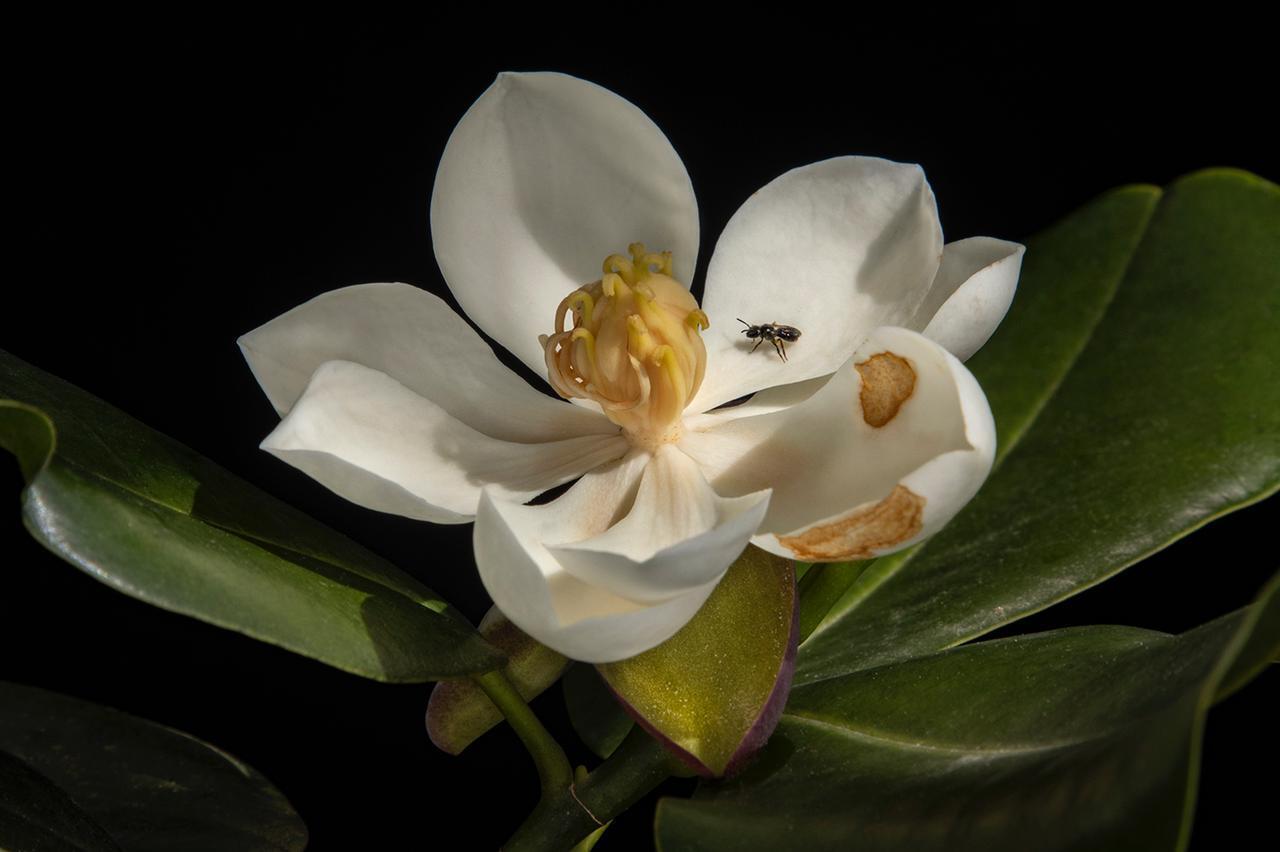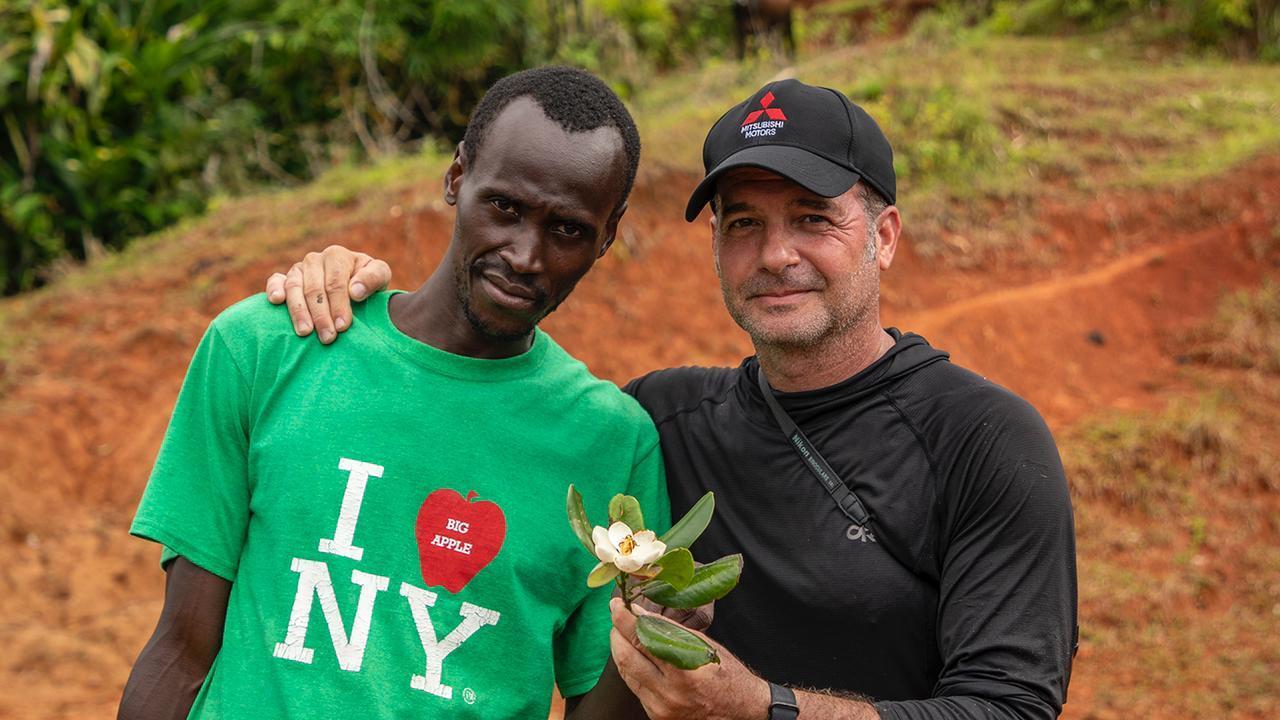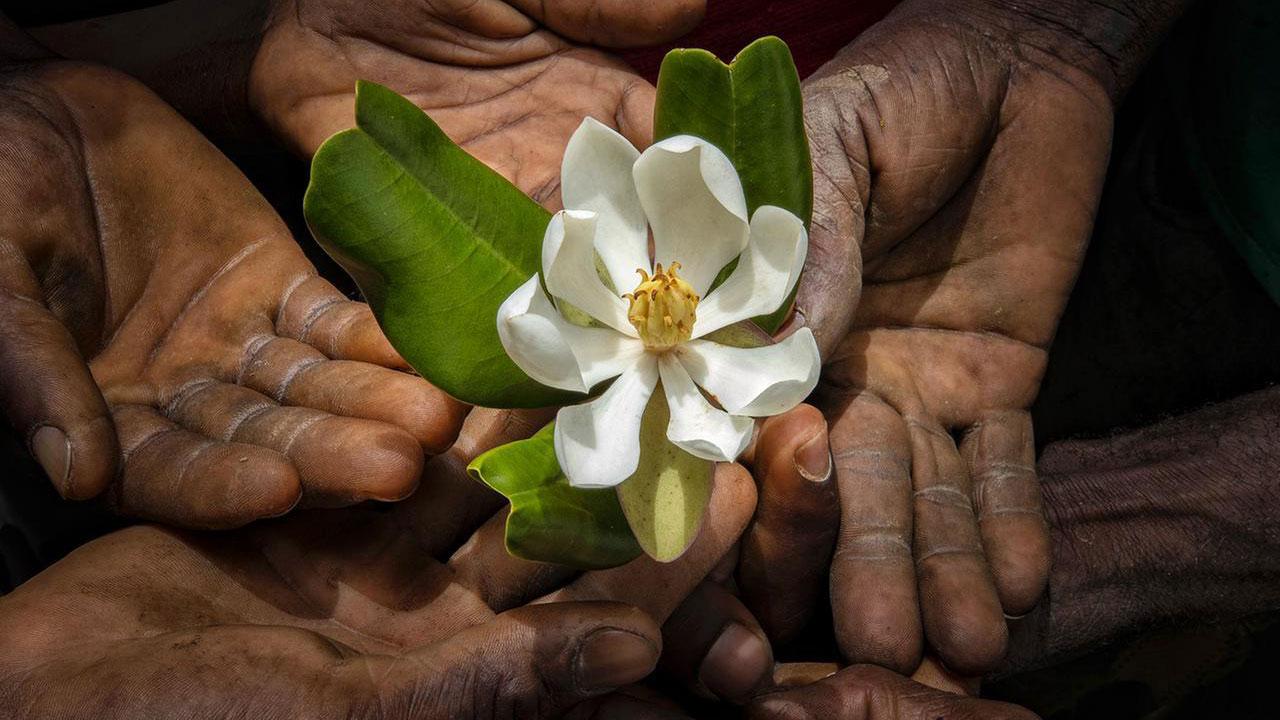Haiti was once lush and teeming with biodiversity. Plants used to flourish there that were found nowhere else in the world. Take the northern Haiti magnolia, known for its flowers with bright white petals and delicate fragrance.
But today, with Haiti among the most deforested countries on earth, sightings of the native magnolia had not been recorded there since 1925. In fact, no one had even snapped a photo of it. Then in June, a team of naturalists with Haiti National Trust trekked to Haiti’s longest mountain range, the Massif du Nord, to try to find the elusive flower.
Expedition leader Eladio Fernandez, from Santo Domingo in the Dominican Republic, said the search was like “an act of faith.”
“You know, when you look for these lost species, there’s a little fever in you that kind of drives your energy,” Fernandez told The World’s host Marco Werman.
Before the trek, the team researched the original specimen collected by Swedish botanist Erik Leonard Ekman in 1925. They referred to the specimen’s labels and matched those with the magnolia’s locality. They were able to identify the exact town and base camp used by Ekman using Google Earth. And then they surveyed the area for these last fragments of forests where the magnolia might be growing.

Fernandez said that the three-day hike up steep ravines while carrying heavy camera equipment was not always pleasant. At times, hungry and tired, some team members started to lose faith.
On the third day, after a five-hour trek, they arrived at the site and set up camp near a welcoming family. They showed them printed images of the magnolia flowers but the family said they hadn’t seen one.
Ferndanez said at first, it was “highly depressing” that no one in the area had seen the flower. And most of his team was already exhausted.
But Fernandez was determined. He continued to search for the magnolia with naturalist Marcsillion L’Homme, while the others stayed behind.
“We were walking by this ravine. It started to rain. And I … looked behind the mountain. I saw the skies were clear. And I said, ‘It’s only a cloud. Let’s just wait.’ And while we were waiting and I took my binoculars, I actually saw the first tree in the ravine, and there it was.”
Getting a glimpse of the rare flower that had been lost to science for nearly a hundred years was “incredible,” Fernandez said.
Ecstatic, they laughed and celebrated the discovery of about 16 magnolia trees, with some that had flowers.
Then they walked back to the campsite with a cutting and showed off the fragrant flower — much to everyone’s delight — with each person taking a turn to inhale its perfume.

Elation aside, Fernandez said that the really big, difficult work still lies ahead.
“We need to go back. We need to collect seeds. We need to set up a nursery. We need to get the community involved. We need to do education. We need to find the funding for this,” he said.
Fernandez would like to see further collaboration between naturalists from Haiti and the Dominican Republic, two sides of the same island whose shared history has been fraught with conflict.
“This expedition [is] a good example of what can be done if we all combine and collaborate for the better.”
